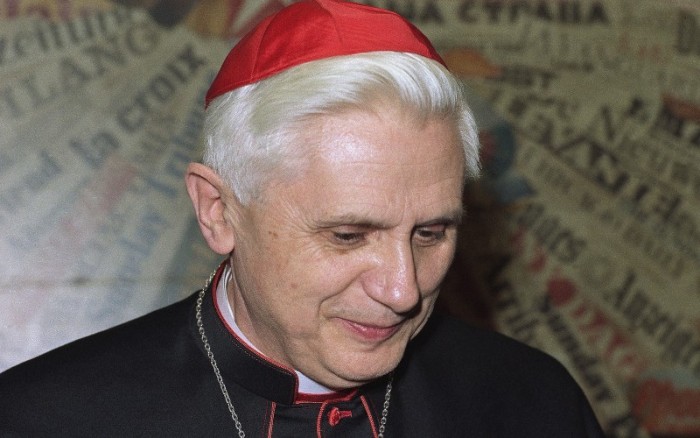
Catholic Herald skriver litt dristig at de kontroversielle spørsmålene bispesynoden om familien diskuterte både i fjor og i år, allerede ble besvart av (den gang) kardinal Ratzinger. De skriver først at dokumentet etter årets synode ikke er spesielt klart, og videre hva Ratzinger sa om dette i 1985, bl.a.:
… The final wording of the synod document famously said nothing at all about Communion or access to the sacraments for people in these situations. And by saying nothing, the debate rages on until, one hopes, Pope Francis issues his own, definitive, take on the matter. The synod, after all, is simply a way for the Pope to canvass opinion before making up his own mind.
Another way for the Pope to inform his thinking is, of course, to reflect upon the thoughts of previous popes on these issues. In 1985, the then Cardinal Ratzinger, as head of the Congregation for the Doctrine of the Faith, sent a letter to Archbishop Hunthausen of Seattle in which he eerily addresses, almost point-by-point, exactly the questions raised by the Synodal relatio. And he does so by rooting the answers squarely in the magisterium of the Church and in the jurisprudence of the Roman Rota and Apostolic Signatura. This is especially interesting because many commentators have recently sought to establish some clear blue water between doctrine, law, individual conscience and pastoral practice on just these issues.
On the subject of the divorced and civilly remarried and their admission to the sacraments, Cardinal Ratzinger explicitly rules out the so-called Kasper proposal because it goes against both doctrinal truth and canonical discipline and specifically warns against encouraging ambiguity on this point:
“Catholics have been advised that after divorce and civil remarriage, they may in conscience return to the Sacraments. Such a practice lacks foundation in the Church’s clear teaching about the indissolubility of a sacramental marriage after consummation, and in sound jurisprudence. A clear presentation, then, of the sacramentality and indissolubility of Christian marriage should be made to all your people. Every effort must be made to avoid written materials which equivocate regarding the essential properties of marriage and which may encourage the divorced to attempt a second marriage without the Tribunal’s declaration of nullity. At the same time, steps need to be taken to ensure that [a] Tribunal, both in its constitution and practice, conforms with all the prescriptions of the revised Code of the Church’s public law.”
Regarding the role of the individual’s conscience in determining their moral state, Cardinal Ratzinger reaffirms that personal conscience is not a law unto itself but is rightly subject to the truth as held and proclaimed by the Church … …
